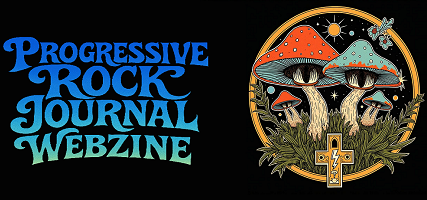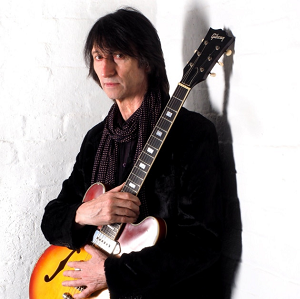Dear readers, it is with genuine pleasure that we present this exclusive interview with a true legend of British Progressive Rock. Today we have the honour of speaking with Bob Jackson, founding member of the cult band Indian Summer, whose self-titled 1971 album has long been considered one of the crown jewels of the genre. Beyond that milestone, Bob’s career has spanned an impressive range of collaborations, projects, and unforgettable experiences across more than five decades of music.
Hi Bob, thank you so much for joining us. How are you doing these days?
Bob: “Hello Jacopo, I’m doing well, thanks. I’m keeping busy … which is a good thing.“
You are a multi-instrumentalist and singer. How did your first passion for music begin, and what inspired you to pursue it seriously?
Bob: “My interest in music really developed in my teens. Music lessons at school didn’t engage me at all, but after I left, I felt an urge — almost a calling — to get involved in creating it. I’d had no training, but like many families in England at the time, we had a piano in the front room, and I began doodling on it. I had no clue about theory, but I enjoyed picking out melodies. Slowly but surely, I had what I thought of as “breakthroughs” — the discovery of harmony, chords, and how music actually worked.
As soon as I left school and got a job, I bought a Hammond M102 organ on an instalment plan and off I went. I practiced obsessively.“
That passion led you, in 1969, to form one of the most fascinating bands of the Progressive Rock era, Indian Summer. How did the project take shape in those early days?
Bob: “Yes, we were right at the beginning of the progressive movement. The ethic back then was to create something original — a long way from the tribute-band approach that’s so prevalent today.“
Your self-titled debut album is regarded as a holy grail among Progressive Rock enthusiasts. Could you tell us about the themes explored in its lyrics and the atmosphere you aimed to create with the record?
Bob: “The ethos of the band was to create something engaging, thoughtful, mysterious even. Musically, we were influenced by artists like The Mothers of Invention, Traffic, Family, Arthur Brown, Hendrix, and Cream.
Lyrically, I wanted to explore themes of life, good and evil in a mystical way. For example, I used the fox as a symbol of evil — omnipresent and ready to seduce whenever it could. As with poetry in general, the lyrics were intended to be enigmatic and esoteric, in order to nurture deeper interest and reflection in the listener.“
The album was released during the golden age of Rock music. What are your fondest memories of those years and of your time with Indian Summer?
Bob: “The scene was so vibrant and exciting back then. There were countless venues and original music everywhere. Sadly, I don’t think we’ll ever see such a burst of creativity again. We found ourselves sharing bills with Peter Green’s Fleetwood Mac, Leon Russell, Black Sabbath, and others. In fact, we were signed to Sabbath’s management, so we knew them pretty well.“
Sadly, Indian Summer released only one studio album. Why did such a promising project come to an end so soon?
Bob: “The agency simply didn’t get us enough gigs, and we couldn’t make it work financially.“
In the years that followed, you contributed to two remarkable records, Moon and Ross, which many consider hidden gems. How did those opportunities come about, and what do you remember from those sessions?
Bob: “Although Moon was London-based, I knew some of the guys, so they invited me to play on the album. That was at Ramport Studios, The Who’s place. Then a group backing John Entwistle asked me to join. I went along to rehearsals and it was working fine, but almost immediately they split from John and morphed into the Ross band.
We quickly got a deal with Robert Stigwood, who managed Clapton, the Bee Gees, and others. That led to several U.S. tours, including Eric Clapton’s stadium comeback tour — shows like Madison Square Garden. It was exhilarating, a real high point.“
In 1974 you joined Badfinger, and later returned in the 1980s with a renewed line-up. What impact did that band have on you personally and professionally, and what are your strongest memories from that chapter of your career?
Bob: “It’s impossible to catalogue the depth of that experience here. It was a very long journey that continues to have a profound effect on me. For those who would like to dig deeper, there’s a wealth of interviews and documentaries on YouTube.“
Looking at the live music scene, how do you feel gigging has changed from the 1970s to today? Has your own approach to performing evolved over time?
Bob: “The business of music has changed beyond recognition. Selling CDs and vinyl in meaningful numbers is almost impossible for indie artists since the advent of streaming. As you know, only those at the very top can make a living from it. There are also fewer live venues available. Sadly, it’s tough to exist as a professional musician today. Today, most musos have to do something else on the side to pay the rent.“
Another significant chapter of your career has been your long tenure with The Fortunes, a band known for their Beat-influenced sound. What can you tell us about your journey with them?
Bob: “I was invited to join The Fortunes after one of the members became too ill to continue. We worked a lot — across the UK, Australia, Canada, the USA, Europe, and even Dubai and Hong Kong. It was a different circuit to my earlier rock experience, but we did good work together and earned a reputation as one of the premier harmony bands.“
Out of all these projects and bands, which one do you feel the deepest connection to, and which left the greatest mark on your musical path?
Bob: “Undoubtedly, it’s Badfinger that was the most memorable and affecting. It was the best and worst of times, to use an old phrase. Joining that band changed my musical outlook. I learned that less is more when arranging songs, and that I didn’t have to show off my “chops” all the time.
Although the band had rock roots, there was also a breadth of thoughtful, emotional material. It was very much the Beatles’ ethic: just great songs, whatever the genre — material from the heart.
Recording at Apple, U.S. tours, the intense business and legal issues, losing Pete and Tommy in such tragic circumstances — all of this has had a fundamental effect on my life. I’m still involved with Badfinger, by the way, and recently managed to get a 50-year-old “lost” album, Head First, its first official release.
For more info, visit: https://badfingeruk.bandcamp.com/album/head-first“
You have given so much to Rock music and its audience over the decades. In return, what has music given to you?
Bob: “Music, like all art, is a wonderful thing and hugely beneficial for the spirit. Because it’s a bottomless process, you can get into “flow” and completely lose yourself in it. Playing music involves many different disciplines, which is why students who study it often do well in other academic subjects too.
I feel fortunat to have lived through the explosion of creativity and social change in the ’60s. I’ve remained professional all my life and managed to maintain a home and family while being involved in a passion that never felt like a job.“
Finally, what advice would you share with young artists who wish to explore more elaborate musical genres such as Progressive Rock?
Bob: “As I’ve said, making a steady living playing Music is not easy; but if you’re determined, follow your heart. And you don’t have to aim at being professional — it’s the most fulfilling pastime in the world, and you can enjoy it for what it is.
Progressive Rock, should you wish to explore it, involves complex arrangement, so sustained learning and technique will be required. Thankfully, today there’s a wealth of tutorials and resources online. You don’t necessarily need formal lessons — most contemporary musicians are self-taught, as I am.
Have fun with it — and all success to you.“
I would like to sincerely thank Bob Jackson for this interview. Speaking with him has been a true honour, and we wish him all the very best in his ongoing artistic journey.


Bob Jackson & Indian Summer one of the best album of music.
Absolutely. Underrated, one of the best Progressive Rock albums ever!!
Wonderful to read the interview with Bob. Such an incredible talent
Indian Summer is one of my top 5 albums ever… A real honour for me to talk with him. Jacopo // PRJ